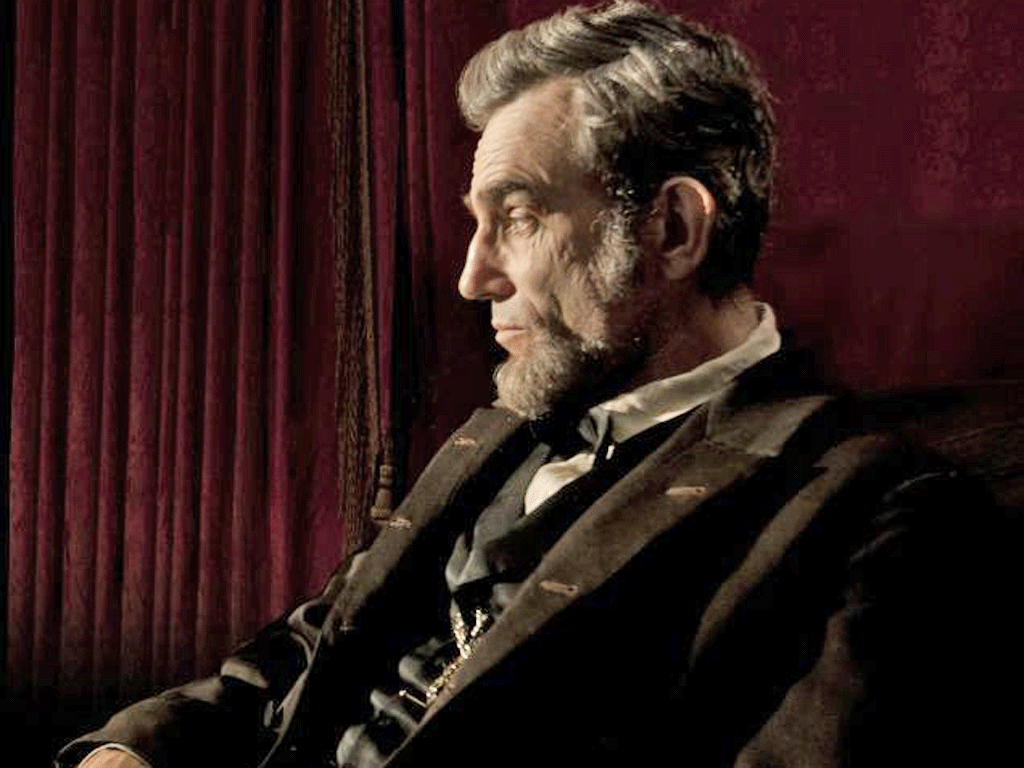Abraham Lincoln's real lesson for Labour? Compromise is over-rated
The idea that Lincoln was the consummate modern political compromiser has to answer one awkward fact: he abolished slavery


The first reason why it's marvellous that the film Lincoln has won acclaim is it's mostly about a group of people discussing ideas. That's not supposed to be popular. If anyone apart from Spielberg had made it, they'd have come under pressure to change it, so Lincoln barked "You've got 24 hours to pass this anti-slavery bill, asshole", before jumping out of a window as Congress exploded, then fighting Robert E Lee on the back of a helicopter.
It's also hard to see how this film could earn money from merchandise, unless they're planning a computer game at which 15-year-old boys will spend all day shouting "Oh NO it's the corrupt Democrat, QUICK, devise a speech to convince him of the inalienable right to freedom of movement. YES, I'm on to Level 6." The virtue it illuminates most clearly, many commentators agree, is compromise.
Abraham Lincoln was only able to pass the bill because he was moderate and patient. Among those who have declared their admiration for this side of the man, and the film, is Alastair Campbell. Maybe that's because there's a Lincoln speech most people don't know, that goes: "I hold this truth to be self-evident, that if you write anything negative about me I'll twist your arse off and use it as a flowerpot on this solemn yet most sanctifying of days."
But the idea that Lincoln was the consummate modern political compromiser has to answer one awkward fact: he abolished slavery. He didn't announce an inquiry into slavery, at which some verbose Lord politely asked plantation owners if they'd ever whipped anyone so they could reply that they couldn't really recall very much and then leave. He didn't set up a focus group to see how abolishing slavery might play in key marginal seats, or propose a self-regulating body of slave owners or insist that clamping down on slavery would drive the owners abroad costing literally billions of jobs.
He didn't appear on Andrew Marr's show, muttering that as it's two years until the election he didn't want to be pressed into saying what his slavery policy might be; and didn't pledge to abolish it and then say that now he was Deputy-President he had to be realistic and treble the number of slaves instead, though he was a bit sorry about that.
In what way was passing the bill that made the abolition of slavery part of the constitution a compromise? Is it because he didn't sing "You're shit and you know you are" at his opponents? Rather than compromise, it must have been driven by tenacity, humanity and principles, or to put it another way, like no mainstream modern politician at all.
Part of what makes Lincoln so fascinating is that he did start out as a compromiser. He insisted the Civil War was only about maintaining the Union, and tried to keep northern racists happy by refusing to allow black people any positions in the army or government. But as slaves fled plantations, and demanded to be part of the army, he became convinced that slavery was central to the war. He set up black regiments, put black people in senior military positions, and became determined to abolish slavery altogether.
The southern states declared this was so outrageous that no peace would ever be possible. No doubt the radio phone-in presenters snarled "Have you read THIS? Now a council in Illinois says you can't even whip your own PROPERTY. What's going ON? It's political correctness gone MAAAAD." But the northern establishment also begged him to compromise. Go too far, they said, and you'll lose the middle ground. The newspapers were full of columns saying things like: "Freeing slaves is all very well, but they'll all come up here and Colorado's crowded enough as it is, and they'll keep us awake singing 'Amazing Grace' all night."
But as slavery became the issue driving the conflict, the Bureau of Coloured Troops enlisted almost 200,000 black soldiers, and as slaves ran off, the southern states started to collapse. In one sense Lincoln did retain the middle ground, but the common-sense view that politicians must always be moderate and compromise often ignores how the middle ground can move.
At the start of the Civil War, the idea of abolishing slavery seemed extreme, but by the end he was able to push it through, and now no politician is likely to say: "In order to win the middle ground at the next election, I announce we will reintroduce slavery." For the last battle of the Civil War, in a hugely poignant moment, Lincoln insisted the slave-trading port of Charleston was captured by a black regiment.
So Labour leaders should watch Lincoln. Then at last Ed Miliband might make an impact with a speech that starts: "Mr Speaker, we are dedicated to the proposition that all men are created equal, and with humility we pronounce that according to that premise we shall declare unto those who place their billions into offshore accounts 'No you don't, pay your tax like everyone else before the eyes of God, you greedy pigs'."
Join our commenting forum
Join thought-provoking conversations, follow other Independent readers and see their replies
Comments
Bookmark popover
Removed from bookmarks